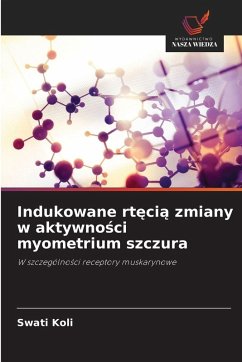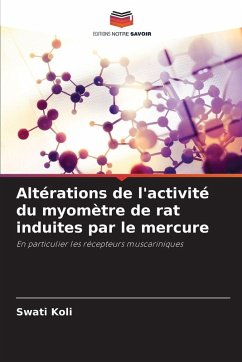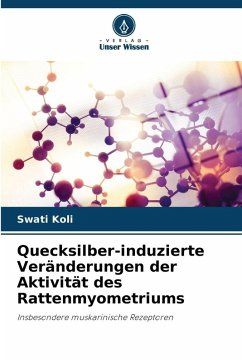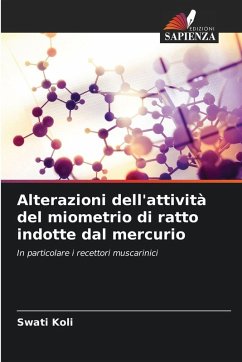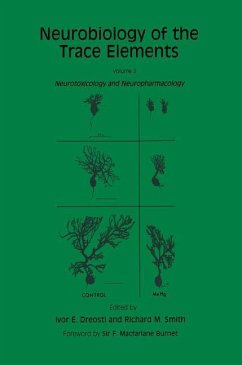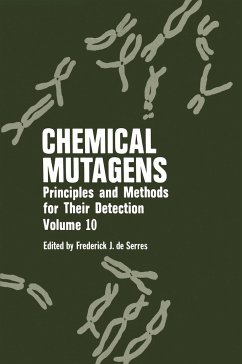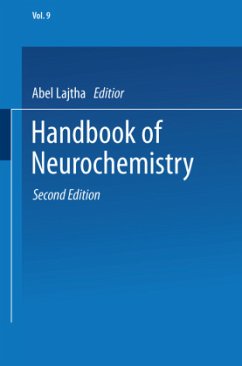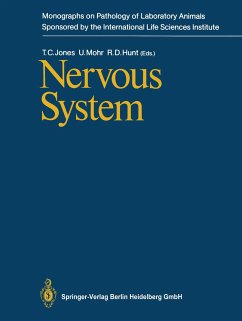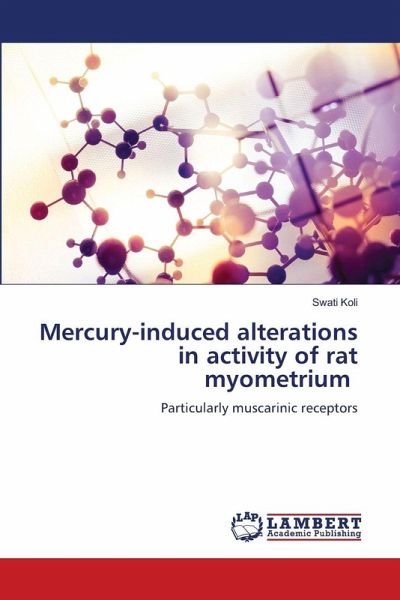
Mercury-induced alterations in activity of rat myometrium
Particularly muscarinic receptors
Versandkostenfrei!
Versandfertig in 6-10 Tagen
40,99 €
inkl. MwSt.

PAYBACK Punkte
20 °P sammeln!
Present book was undertaken to evaluate the toxicity of mercury at environmentally realistic concentration with particular reference to its effect on signal transduction mediated through muscarinic receptors in rat myometrium. The study was conducted in two phases- phase I (In vivo study in rats at 5, 50 and 500 ppb dose of mercury for a period of 28 days) and phase II (In vitro study after isolation of strips of rat myometrium and assessing the effect of different concentrations of mercury in presence of muscarinic agonists and antagonists and other signaling molecules). In-vivo study include...
Present book was undertaken to evaluate the toxicity of mercury at environmentally realistic concentration with particular reference to its effect on signal transduction mediated through muscarinic receptors in rat myometrium. The study was conducted in two phases- phase I (In vivo study in rats at 5, 50 and 500 ppb dose of mercury for a period of 28 days) and phase II (In vitro study after isolation of strips of rat myometrium and assessing the effect of different concentrations of mercury in presence of muscarinic agonists and antagonists and other signaling molecules). In-vivo study includes studies on general toxicity parameters in mercury treated rats and toxicodynamics of mercury on isolated myometrial strips. In conclusion, mercury seems to have affinity for accumulation in kidney, liver, ovary, uterus and blood levels can be considered as biomarkers of exposure to mercury. Mercury-induced myometrial contractility seems to be regulated through cholinergic neurotransmissionpathway/ receptors (M2 and M3 muscarinic receptor). Mercury-induced myometrial contractions seem to be Calcium dependent, Involve VDCC or Involve Rho-kinase, PKC and PLC pathway.



